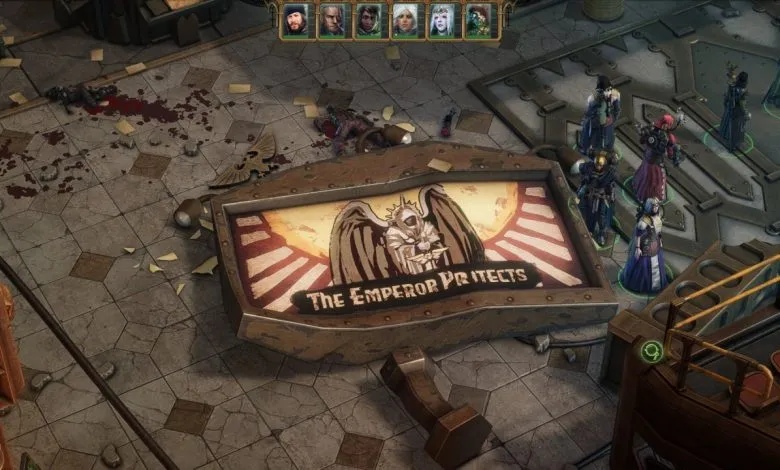
WARHAMMER 40,000: ROGUE TRADER Review
Through its involvement with old-school Pathfinder RPGs, Owlcat Games has now established a "formula" that fans have come to expect to experience in each of the company's new creations. This formula includes, in addition to the isometric viewpoint, an extensive game duration that exceeds (even by far) 100 hours per playthrough, numerous quests with choices for all possible roleplay options, exploration of a large world map with small and large-scale visitable sub-areas, a deep character creation system, equally deep individual gameplay mechanics of varying implementation... as well as quite a few bugs, especially in the early stages. Warhammer 40,000: Rogue Trader, which officially released a few days ago, for better or for worse fulfills all of the above to the superlative degree.
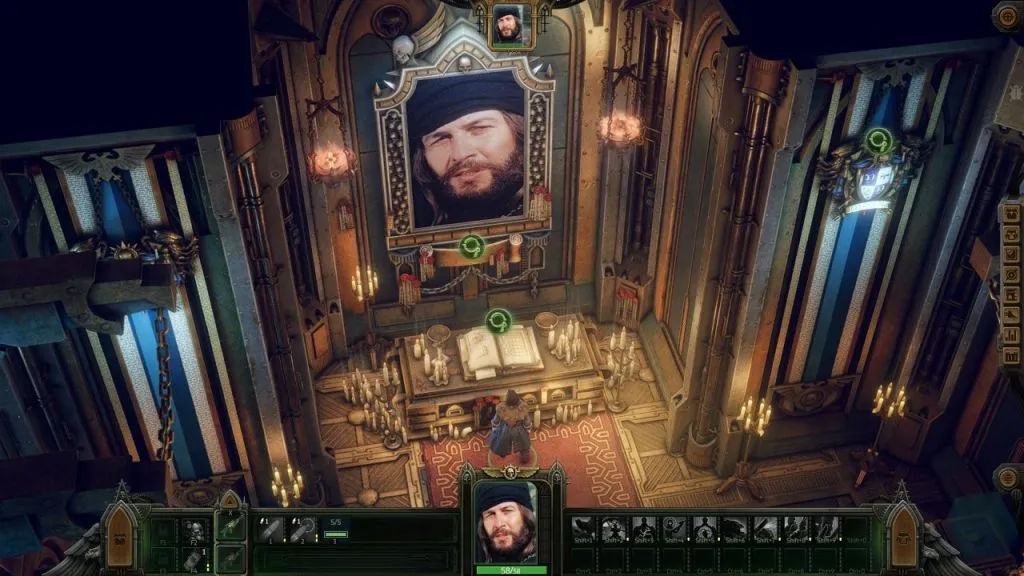
As its title probably suggests, the game features a Rogue Trader, an agent in the service of the God-Emperor of Mankind, with a rather free role and authority to explore, trade, deal with Xenos, and establish colonies in His name. After the events in the game's prologue, our character ends up receiving the Warrant that authorizes him to exercise his role in the dangerous and largely unexplored star sector of the Koronus Expanse.
In terms of atmosphere alone, Rogue Trader offers everything a Warhammer 40,000 fan could ask for in a title that takes place in that setting, whether it was an RPG or not. We have the familiar races of that universe, Voidships and dangerous journeys through the Warp, familiar technology and weapons systems, Space Marines (and Chaos Space Marines), the Chaos Gods and their cultists, and, opposing them, the more "orthodox" Imperial Cult. Most important, of course, is the fact that these elements are mostly implemented smoothly and not in a manner that feels forced, and thus feel like an organic and convincing part of a world, rather than a 40k amusement park that just throws familiar concepts and characters in players' faces to remind them that they're playing a game in this setting.
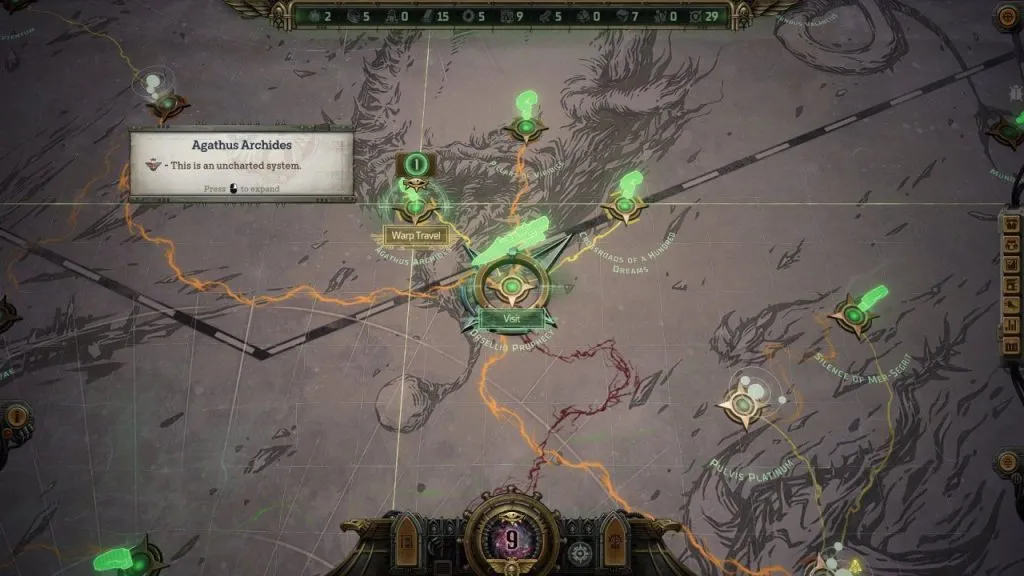
The eternal battle between the Emperor's agents and the forces of Chaos inevitably ends up influencing directly or indirectly the development of both the plot and of our own character. Our decisions and choices in the dialogues and in the main and side quests lead us towards one of the three available game paths, which essentially correspond to blind loyalty to the Emperor, heretical dealings with Chaos, or adopting a more "neutral good" mentality based on the good of the Expanse's citizens rather than the Emperor-Chaos dichotomy. Obviously the above does not leave the player's companion NPCs unaffected, each of whom has their own beliefs and worldviews, which they are more than willing to share with the player as comments on their actions.
As you'd expect from an Owlcat RPG, each of these three paths obviously leads to different thrills in each playthrough (e.g. the "fanatic Imperial" character can bluntly execute companion NPCs that are xenos or heretics, and the aspiring heretic can even introduce "secret" chaotic NPCs into the party! ), influences quest and plot progression (at times even drastically), and determines the world state that is formed after the events of the finale.

Writing-wise, I'd describe Rogue Trader as very good if slightly uneven at times. The main storyline is highly interesting as a 40k adventure, there are some really well written NPCs (Pasqal, the Tech Priest companion NPC, has emerged as a HUGE bro for life) and many equally well written quests that keep the interest going. There are however some pacing issues, and at times it feels like the plot events (as well as our relationships with the companion NPCs) are moving faster than what would make sense. There are also some quite "game-y" writing initiatives here and there that might annoy hardcore Warhammer fans. For example, I'm recalling a scene in the first Chapter of the game where our party, consisting of barely level 10 characters, is called upon to face (and defeat) in battle a powerful Chaos Space Marine who, under normal circumstances, should be able to wipe out our sorry mob with a just sneeze.
The game's turn-based battles (and exclusively turn-based, unlike the company's Pathfinder games) are a bit reminiscent of the "true" Fallout games or XCOM. The cover mechanics, and the way movement in battles is implemented using separate Movement Points and Action Points, perhaps bring the comparison closer to XCOM, though sadly lacking a similar Overwatch movement or the Suppression and Flanking mechanics that gave it great tactical depth. Not to say, of course, that the combat in Rogue Trader is without depth - on the contrary, the highly deep and complex character development system (to the point of overkill one might say - more on this below) guarantees a plethora of combat skills, tactics and stratagems that can be used by the player and their companions on the way to victory.
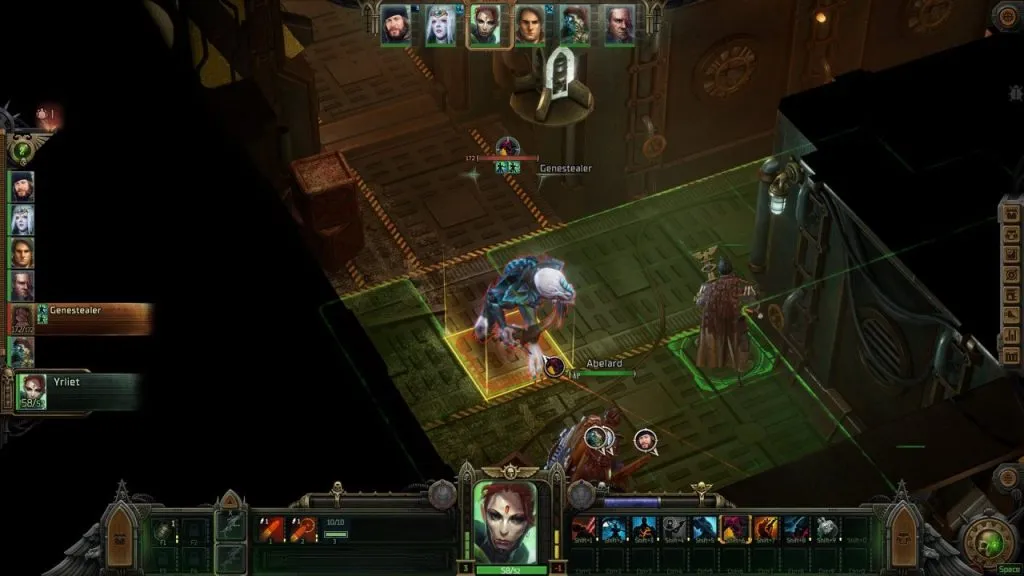
The corresponding Owlcatian "Kingdom Management" aspect of Rogue Trader is the Colony Management function. Under this concept, our character takes control of individual planets during the course of his adventures, which he must develop through the construction of a series of buildings. Constructing these requires the use of specific resources, which we collect by exploring the galaxy, completing various mini-quests/events or through Contracts that appear in a separate tab of our Journal. These buildings will in turn provide extra resources, as well as a rise (or fall) in the three stats of the planets - Security, Complacency, Efficiency - alongside unlocking the next Tier of available structures. It's worth noting that some buildings are mutually exclusive - there are essentially 2 or 3 separate build trees on each planet and it's not possible to build everything everywhere, and so the players will have to choose the benefits they want based on their own interests (or roleplay, obviously).
Contracts and Colony Projects, along with certain quest choices, are the main way to increase the game's "monetary unit": the Profit Factor. In the context of the world, the Rogue Trader is already unimaginably wealthy and handles infinite amounts of money, so there's no point in having a traditional Gold system. Instead, his dynasty's purchasing power is certified by the Profit Factor meter, which determines what the Trader can buy from a Vendor belonging to one of the Expanse's 5 main factions.

Ah yes, the Factions, yet another gameplay mechanism. What each Faction offers for sale is determined by our Reputation with them, which is increased either by our choices during the storyline, by what structures we choose to build on the planets, or, most importantly, through the donation of Cargo, which is essentially junk items we collect while exploring the galaxy. There are many categories of Cargo items, and each Faction wants specific ones in order to give Reputation, so again a bit of "strategy" is required when deciding what to donate to which faction. It should also be mentioned that, in addition to junk items, gear items that we collect e.g. as loot after battles can be labeled as Cargo, so there's a convenient outlet for the thousands upon thousands of scrap armor and weapons we end up collecting.
The list of distinct gameplay mechanics that Rogue Trader offers closes with the space combat component. This is essentially turn-based combat in space, where the Rogue Trader's Voidship is pitted against ships of pirates, cultists, Xenos or other alien and non-alien opponents. It is possible to customize and upgrade the Voidship's armament and armor by purchasing individual components (or acquiring them as loot after a battle). We can also place our companion NPCs as crew members from the corresponding Voidship tab of the UI, with each offering different benefits and combat skills depending on their stats.
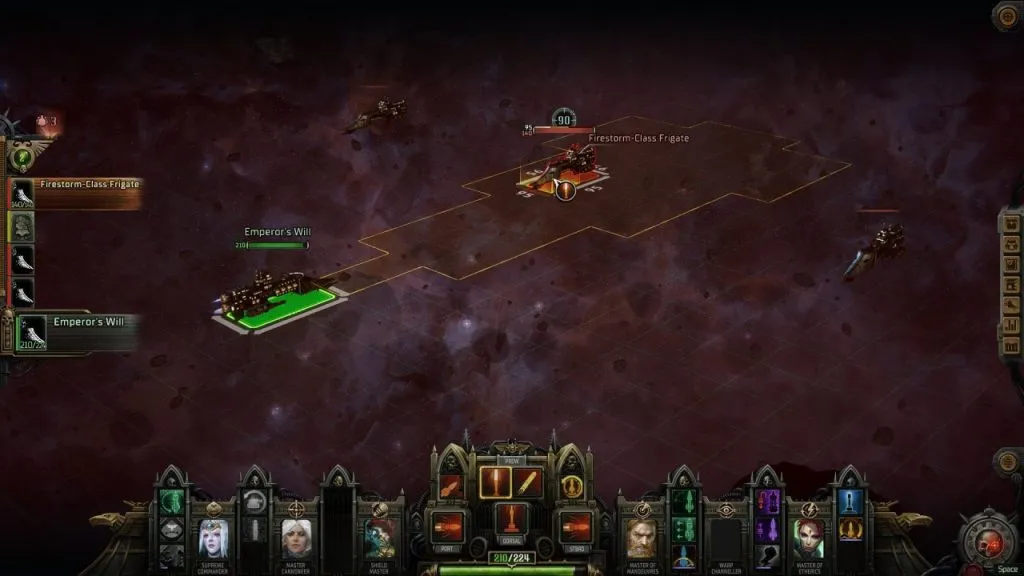
Just listing all of the above might seem a bit tiresome, and all these features might discourage a casual player who simply wants to explore planets and kill heretics in turn-based combat. On the other hand, of course, we know what to expect from an Owlcat game by now and, fortunately, for the most part, the above mechanics are implemented in a way that organically ties in with the broader gameplay without becoming tedious. The exception to this might be the space battles, which occasionally, truth be told, cut off the flow of plot progression or exploration in a rather abrupt manner.
The above provides an excellent segue to address any flaws in the game. If one has to point out negatives in Rogue Trader, these are either the typical ones that might be seen in virtually all Owlcat games, or they arise as a result of the creators being overly ambitious compared to what the tools at their disposal can actually do. Starting with the visuals, the graphics of the environments, locations and characters are gorgeous, but the game engine (or at least the way it is implemented) admittedly doesn't lend itself well to the creation of in-engine cutscenes, and yet pretty much all cutscenes are rendered that way. To see in the year 2023 "cutscenes" in which the character models don't even move their mouth when speaking, for example, however negligible as a flaw in the grand scheme of things, does seem a bit off. To be honest these cutscenes reminded me a bit of my time playing Lord of the Rings Online back in 2010.
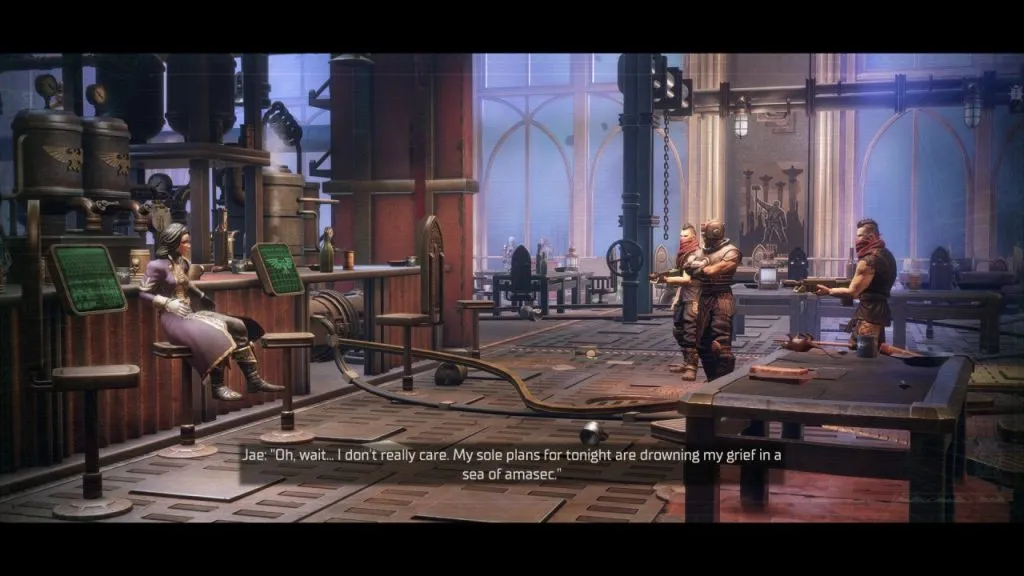
Another feature that could be pointed out, perhaps not as a "flaw" but as an area that needs at least some streamlining, is the broader organization of the Leveling system and the listing of Skills/Talents in it. It's a given that the depth of the whole system is bound to bring about some degree of complexity, but when, for example, you have to choose a new Talent for your character and the description of almost everything is along the lines of "Increases damage by [PER x0.2 + INT/5 + 2 per CHAR level + STR Bonus]", you can't help but stare at the screen and laugh. Maybe as I get older I become more of a filthy casual than I'm used to being, but after a certain point the truth is that, especially with companions I didn't include in my usual party rotation, when levelling them I picked talents almost at random just so I could get this over with and get on with the game. It would help a lot in such a situation to at least have an Auto-Level option that would pick the most recommended Talents for each character's class archetype, an option that was offered in Owlcat's Pathfinder games but is oddly absent from Rogue Trader.
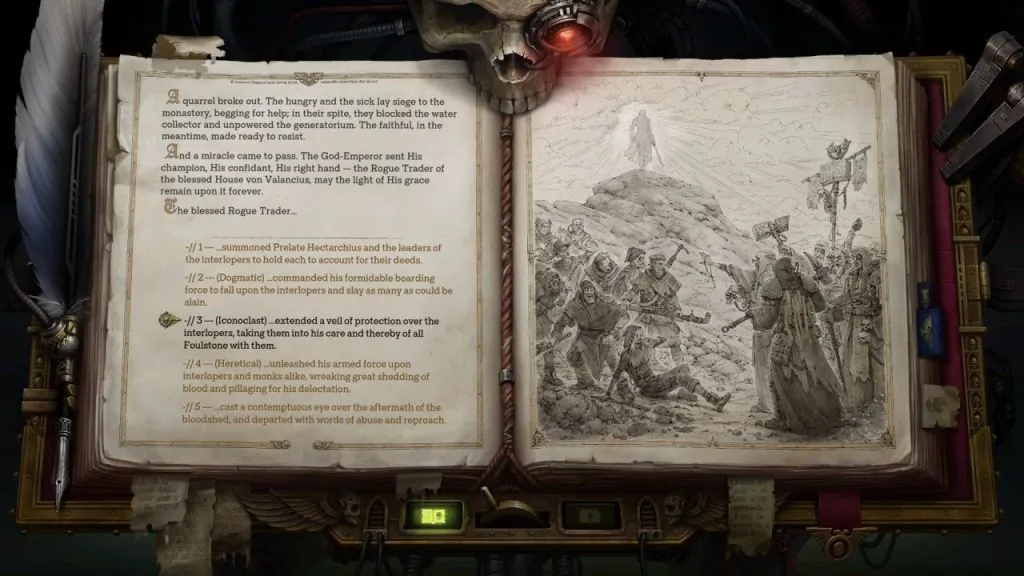
The main flaw that I was about to point out, and which would probably have a significant impact on the game's final score, is none other than the bugs. The public is by now more or less used to Owlcat games being buggy on release, and the running joke on the internet is that all of the company's game's are released in early access and are only worth playing a year or so after their initial release. Rogue Trader, until a few hours ago at least, was no exception.
At launch the game was mostly polished up until chapter 3, which is unsurprisingly the point where the closed beta events ended. Not to say that there weren't bugs and glitches scattered here and there anyway, some of them quite serious, like half of the Talents being broken and not working as they should, some of them downright comical, like a quest reward that was supposed to give you a 5% discount on the vendors of a faction, but in the end instead of a discount it imposed... A 5% INCREASE in all prices. Entering Chapter 4, however, you could almost feel the game progressively collapsing around you: 3/4 of the companion quests contained bugs and couldn't even be completed, the Colony Management part suddenly became completely bugged and I couldn't even enter the corresponding UI tab, text and art were missing from the dialogue... and the highlight came in Chapter 5, just before the ending, where a game-breaking bug didn't even allow me to continue the Main Quest. Eventually I had to resort to using a Unity Cheat Engine through which I was able to bypass the broken quest conditions to eventually make it to the ending, but obviously you wouldn't call that an ideal solution.
Finally, a few hours before this review was uploaded, a patch of several GB was released, which fixes the most serious of the above issues, and the developers said that they intend to release more patches until the end of 2023. Which is a significant improvement over what went on with Kingmaker for example, but... well, it's the company's third game now, so one would believe that some bug-fixing processes before release should have been more optimized by now. Then again, of course, in an industry where AAA multi-million dollar productions from giant studios are constantly released broken and unplayable, it would be a bit of an exaggeration to overly pick on little ol' Owlcat.
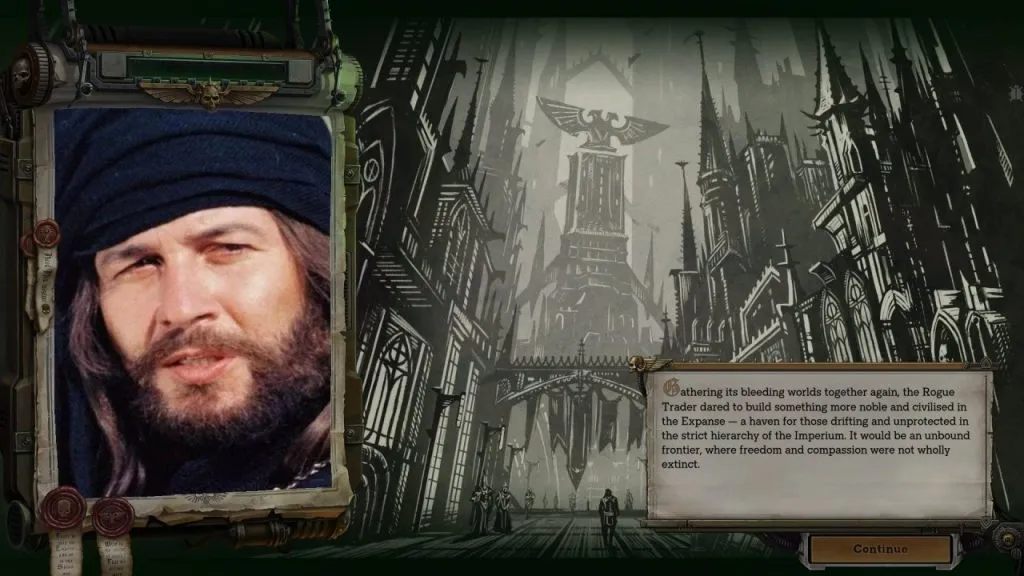
And the truth is that I can't hold a grudge against the game's developers considering how much fun I had with Rogue Trader while it was "working as intended". It may take place in a dark, dystopian future where war is prevalent, but exploring the Koronus Expanse is a grand adventure that filled me with joy. Despite any flaws in whatever gameplay area they might be found, Rogue Trader was undoubtedly created by people with passion and knowledge of the setting and lore, who sought to create an excellent Warhammer RPG and, for the most part, they succeeded.
We thank Owlcat Games for providing us with the review copy for the game.
Chance of successfully traversing the Immaterium - 84%
84%
Safely back in Realspace
Despite any flaws, wherever they might be found, Rogue Trader was undoubtedly created by people with passion and knowledge about the Warhammer 40,000 setting and lore, who sought to create an excellent Warhammer RPG and, for the most part, they succeeded.

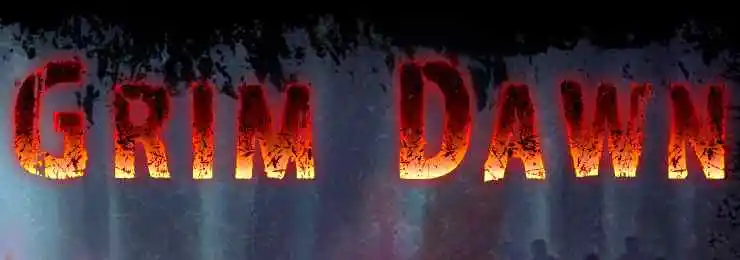
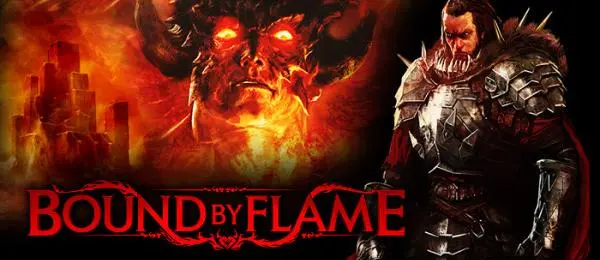



data-trpgettextoriginal=9 comments